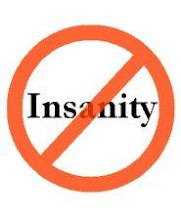
I've been accused of being a socialist. At first, I didn't quite know what to make of it, as the definition of socialism appears to be so broad and vague that it is hard to pin down. Generally these accusations come whenever I propose changes that would be beneficial to all of society, meaning all people. An example might be the universal availability of low-cost health care. One would think that it would be beneficial to both society and individuals to promote health and deal efficiently with debilitating injuries and disease. And when I say "deal efficiently," I'm thinking along the lines of the Golden Rule, which I believe is universally recognized as the cornerstone of any cooperative social organization. In my mind, universal health care would appear to be "socialist," if socialism is defined as organizing to provide desired benefits to all individuals of a society. And yet the implied connotation when I've been called a socialist is that I have evil or vile intent.
Other minds have considered the question of how to best organize society without diminishing the individual. One of those minds eerily predicted the economic and social crisis that we are faced with today in the United States (and in most other countries):
"Private capital tends to become concentrated in few hands, partly because of competition among the capitalists, and partly because technological development and the increasing division of labor encourage the formation of larger units of production at the expense of smaller ones. The result of these developments is an oligarchy of private capital the enormous power of which cannot be effectively checked even by a democratically organized political society. This is true since the members of legislative bodies are selected by political parties, largely financed or otherwise influenced by private capitalists who, for all practical purposes, separate the electorate from the legislature. The consequence is that the representatives of the people do not in fact sufficiently protect the interests of the underprivileged sections of the population. Moreover, under existing conditions, private capitalists inevitably control, directly or indirectly, the main sources of information (press, radio, education). It is thus extremely difficult, and indeed in most cases quite impossible, for the individual citizen to come to objective conclusions and to make intelligent use of his political rights."
I have long decried the overpowering economic control of the international central bankers, their control of the media, their outright purchasing of our government representatives and so-called public servants, the deliberate dumbing down of America, and the orchestrated mind control of the masses. It appears someone agrees with me. The above quotation was written 60 years ago by one of the most respected thinkers of the 20th century - Albert Einstein. He was considering the problem humanity has struggled with for a very long time - overcoming what Thorstein Veblen called "the predatory phase" of human development. How can we move beyond the dog-eat-dog world of competition to the more egalitarian world of cooperation? Einstein clearly saw capitalism as a manifestation of unhealthy competition, and he argued that a socialist approach was the only cure:
"This crippling of individuals I consider the worst evil of capitalism. Our whole educational system suffers from this evil. An exaggerated competitive attitude is inculcated into the student, who is trained to worship acquisitive success as a preparation for his future career. I am convinced there is only one way to eliminate these grave evils, namely through the establishment of a socialist economy, accompanied by an educational system which would be oriented toward social goals."
In order to ensure that social goals are pursued, a socialist economy will require an accurate feedback loop between individuals and the organization charged with guiding economic policy. The details of this organization and the feedback loop are yet to be designed, but it is clear that the design must be inherently self-correcting in the same manner as the Golden Rule. This is no easy task, as one need only look at the capitalist fable of the "invisible hand of the market" that was supposed to efficiently regulate excesses and likewise be self-correcting. In actual practice, however, capitalists found it all too easy to manipulate markets, and this behavior was positively reinforced by their own self-interests with no mechanism to limit those self-interests, resulting in the very excesses "the invisible hand of the market" was meant to prevent.
Would it be more correct to define socialism as the means of organizing a society for maximum individual and social benefit? If so, then I am hoping to become the best socialist I can be.


No comments:
Post a Comment